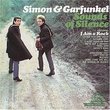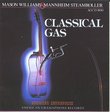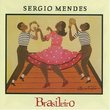| All Artists: Itzhak Perlman Title: Vivaldi: The Four Seasons Members Wishing: 0 Total Copies: 3 Label: EMI Classics Release Date: 10/25/1990 Genre: Classical Styles: Forms & Genres, Concertos, Historical Periods, Baroque (c.1600-1750), Instruments, Strings, Symphonies Number of Discs: 1 SwapaCD Credits: 1 UPCs: 077774731928, 077774731959 |
Search - Itzhak Perlman :: Vivaldi: The Four Seasons
 | Itzhak Perlman Vivaldi: The Four Seasons Genre: Classical
No Description Available. Genre: Classical Music Media Format: Compact Disk Rating: Release Date: 14-MAR-1989 ![header=[] body=[This CD is available to be requested as disc only.]](/images/attributes/disc.png?v=a4e11020) ![header=[] body=[This CD is available to be requested with the disc and back insert.]](/images/attributes/disc_back.png?v=a4e11020) ![header=[] body=[This CD is available to be requested with the disc and front insert.]](/images/attributes/disc_front.png?v=a4e11020) ![header=[] body=[This CD is available to be requested with the disc, front and back inserts.]](/images/attributes/disc_front_back.png?v=a4e11020) |
Larger Image |
CD DetailsSynopsis
Product Description No Description Available. Genre: Classical Music Media Format: Compact Disk Rating: Release Date: 14-MAR-1989 Similarly Requested CDs
|
CD ReviewsThe resentment of Pearlman continues A. Fondacaro | Austin, TX | 07/29/2004 (4 out of 5 stars) "This album should truly rank higher than what others have said about it. Pearlman's proficiency does wonders for "Four Seasons." His attack on Summer, allegro non molto is brisk and almost breathless, transmitting an urgency, a coming rainstorm. And then he explodes with the other strings, dies out, the rain is over, the eaves are dripping in the sun. The movement continues, the urgency is never lost. I suppose it's conducted too fast? I suppose you are concerned that it's either too baroque or not baroque enough? Whatever, such modulations are almost a trifle anymore. Winter comes with a chill. Now here's where Pearlman gets to shine, dueling with the strings, his single violin singing out against their droaning, like a blast of frigid wind in your face versus the dead cold of a snowstorm. Again, is it too fast? Do they rush the movement? No, it's brilliant. Obviously these are some of Pearlman's decisions, if not all. When you are a genius violinist then you get to make these calls. So please, stop resenting these sort of decisions that might fall out of the radar of acceptable interpretations. There's a difference, children, between "acceptable" and "bad," and this album is NOT a "bad" interpretation. " This is a wonderful recording. A. Fondacaro | 08/15/2000 (4 out of 5 stars) "I was discouraged to read the first two reviews of this. I think this is a brilliant recording of "The Seasons". Perlman is a master of the violin and this recording proves that. My favorite is summer he plays it with such passion and artistry. This is one of the best recordings of this piece I've ever heard. I am happy with the recording and I listen to it as often I can. It is magnificent." Buy the Mutter CD instead Mark Grinstein-Camacho | 05/12/2000 (3 out of 5 stars) "This is an amazing recording; "The Four Seasons" is an amazing piece: you can't go wrong. The problem is that Perlman rushes throught it all, rather than savoring it, making it harder to hear. The result is "sparkling" rather than "scintillating". Of course, if you just listen to it, you will hear both glory and beauty; how can the brilliant first movement of "Spring" be played in any way less than totally passionate? In the second movement of "Winter" you can nearly see the icicles melting outside the window or the blazing fire; that's how it was written. In some points it is even better than the Mutter disc, because she has so much dynamic control that it is almost impossible to find a volume level at which the soft parts are audible but the loud parts aren't deafening. I think Perlman intended you to just sit back and relax, and figure out all of the things by yourself."
|

 Track Listings (12) - Disc #1
Track Listings (12) - Disc #1








